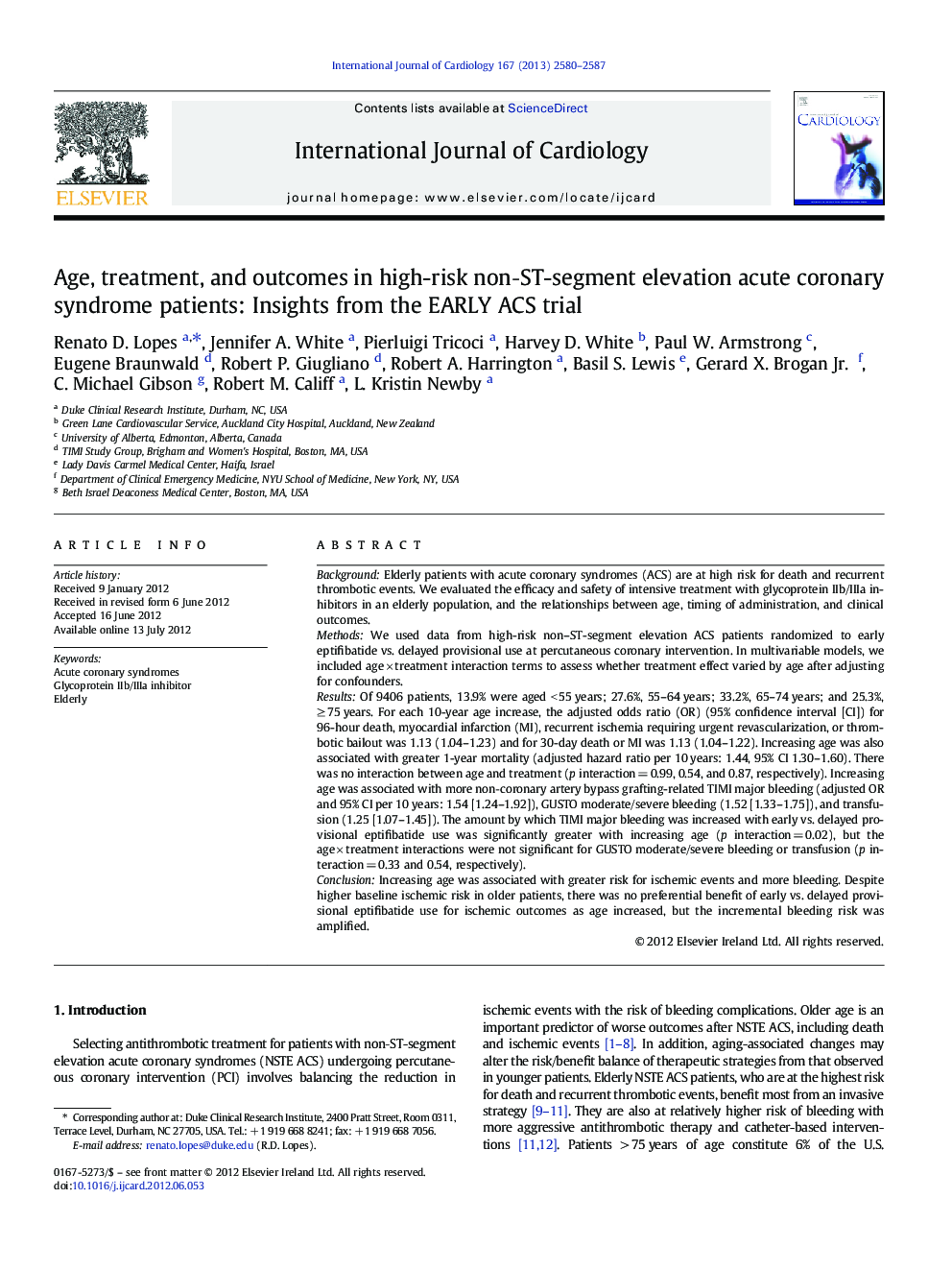| کد مقاله | کد نشریه | سال انتشار | مقاله انگلیسی | نسخه تمام متن |
|---|---|---|---|---|
| 5974463 | 1576212 | 2013 | 8 صفحه PDF | دانلود رایگان |

BackgroundElderly patients with acute coronary syndromes (ACS) are at high risk for death and recurrent thrombotic events. We evaluated the efficacy and safety of intensive treatment with glycoprotein IIb/IIIa inhibitors in an elderly population, and the relationships between age, timing of administration, and clinical outcomes.MethodsWe used data from high-risk non-ST-segment elevation ACS patients randomized to early eptifibatide vs. delayed provisional use at percutaneous coronary intervention. In multivariable models, we included age Ã treatment interaction terms to assess whether treatment effect varied by age after adjusting for confounders.ResultsOf 9406 patients, 13.9% were aged < 55 years; 27.6%, 55-64 years; 33.2%, 65-74 years; and 25.3%, â¥Â 75 years. For each 10-year age increase, the adjusted odds ratio (OR) (95% confidence interval [CI]) for 96-hour death, myocardial infarction (MI), recurrent ischemia requiring urgent revascularization, or thrombotic bailout was 1.13 (1.04-1.23) and for 30-day death or MI was 1.13 (1.04-1.22). Increasing age was also associated with greater 1-year mortality (adjusted hazard ratio per 10 years: 1.44, 95% CI 1.30-1.60). There was no interaction between age and treatment (p interaction = 0.99, 0.54, and 0.87, respectively). Increasing age was associated with more nonâcoronary artery bypass grafting-related TIMI major bleeding (adjusted OR and 95% CI per 10 years: 1.54 [1.24-1.92]), GUSTO moderate/severe bleeding (1.52 [1.33-1.75]), and transfusion (1.25 [1.07-1.45]). The amount by which TIMI major bleeding was increased with early vs. delayed provisional eptifibatide use was significantly greater with increasing age (p interaction = 0.02), but the age Ã treatment interactions were not significant for GUSTO moderate/severe bleeding or transfusion (p interaction = 0.33 and 0.54, respectively).ConclusionIncreasing age was associated with greater risk for ischemic events and more bleeding. Despite higher baseline ischemic risk in older patients, there was no preferential benefit of early vs. delayed provisional eptifibatide use for ischemic outcomes as age increased, but the incremental bleeding risk was amplified.
Journal: International Journal of Cardiology - Volume 167, Issue 6, 10 September 2013, Pages 2580-2587